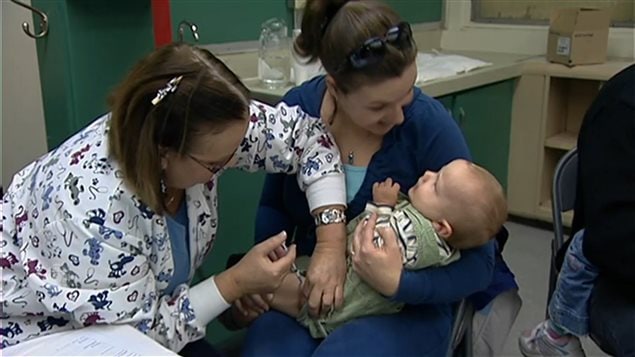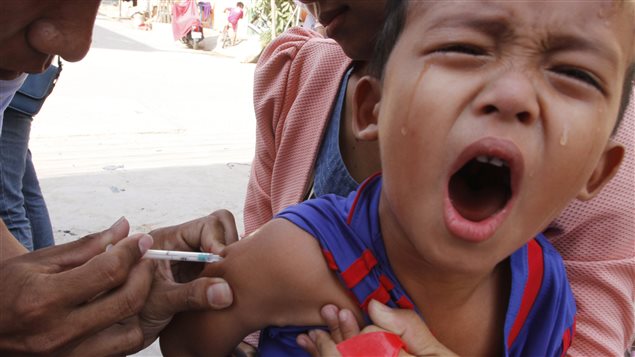Past experience determines how anxious pre-schoolers will be about getting vaccinations but it’s not about past pain during immunization. The biggest determinant was their parent’s or caregiver’s behaviour, according to a recent study.
More than half of children afraid
In Canada, children routinely get about a dozen needles for immunization starting at the age of two months and until they are 17. Studies suggest more than half of them are afraid of needles. The fear can be so bad that they may experience more pain-related distress after the shot and they may also learn to avoid future medical appointments.
Hundreds of children were observed getting immunized over several years by researchers from York University’s Opportunities to Understand Childhood Hurt lab, also called the OUCH Lab.

Findings ‘really shocked us’
“We found some things that really shocked us,” said Rebecca Pillai Riddell, a psychologist, professor and head of the lab. “When we first started this study we were hoping to show that when babies expressed a lot more pain when they were young (being immunized) that that pain would actually…make them more scared when they were older and got their pre-school needles.
“It turns out that we were totally wrong,” said Pillai Riddell. “Actually how well the caregiver and how sensitive the caregiver was, particularly at 12 months, actually led to less fear prior to the needle.”
ListenParents need to be calm, soothing
As a result of the findings, Pillai Riddell developed an ABCD list to help parents or care-givers make immunization a better experience:
- The caregiver should assess his or her own anxiety
- The caregiver should belly breath to calm him or herself
- Be calm, close to the baby and cuddle
- Distract the baby, perhaps not immediately, but shortly after the initial shock of the needle.
There are videos to explain techniques to parents and caregivers. Next, researchers plan to work with doctors and nurses to suggest how they can help parents make immunization better for them and for their children.
The study’s first author was Nicole Racine, a Phd student in the OUCH lab.







For reasons beyond our control, and for an undetermined period of time, our comment section is now closed. However, our social networks remain open to your contributions.